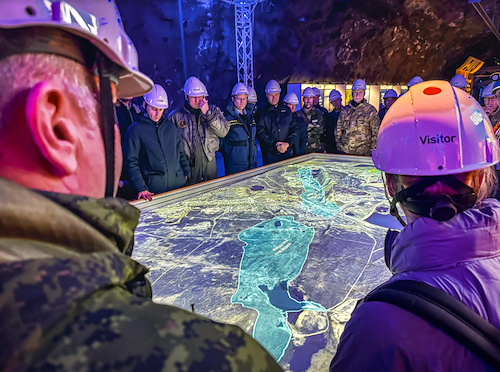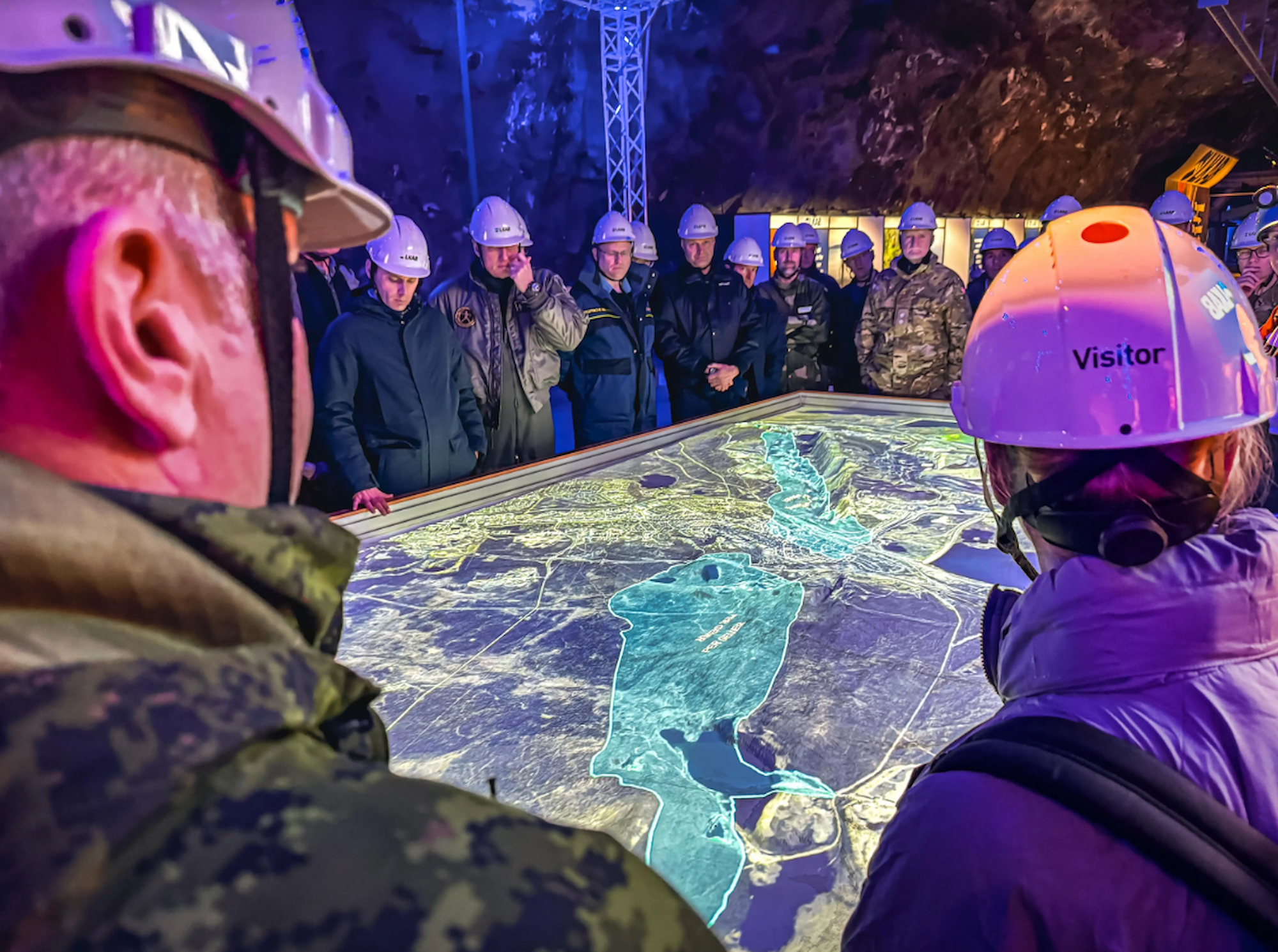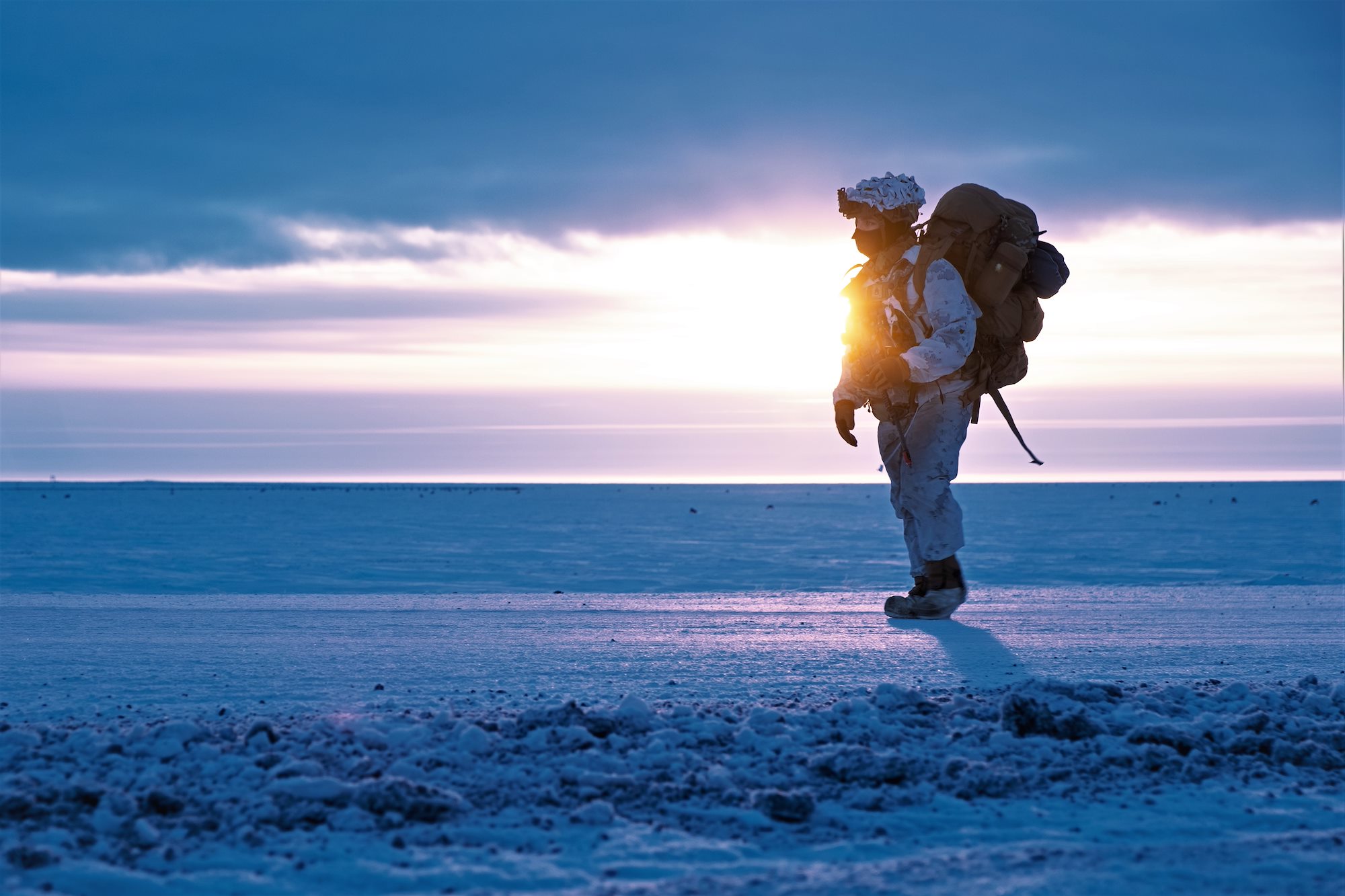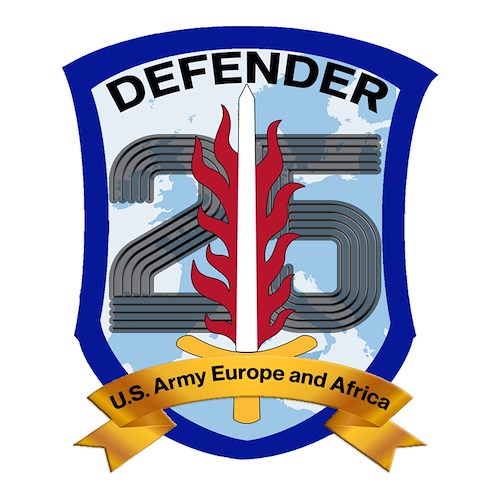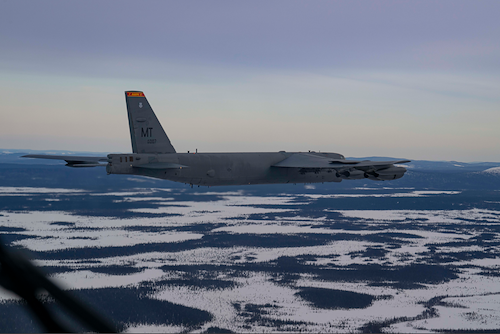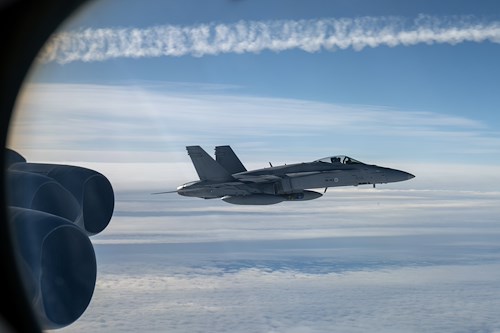Gallery contains 3 images
×
Photo 1 of 3
Arctic Security Forces Roundtable 2024
Military leaders from 11 European and North American nations wrapped up military strategic and joint operational discussions focused on Arctic security during the annual Security Forces Roundtable in Kiruna, Sweden, March 19-21, 2024.
Photo by: U.S. European Command Public Affairs
Photo 2 of 3
Arctic Security Forces Roundtable 2024
Military leaders from 11 European and North American nations wrapped up military strategic and joint operational discussions focused on Arctic security during the annual Security Forces Roundtable in Kiruna, Sweden, March 19-21, 2024.
Photo by: U.S. European Command Public Affairs
Photo 3 of 3
11th Airborne Division
U.S. Soldiers assigned to 1st Infantry Brigade Combat Team, 11th Airborne Division, move to their objective outside of Utqiagvik, Alaska, as part of Joint Pacific Multinational Readiness Training Center 24-02, Feb. 15, 2024. (U.S. Army Photo by Pfc. Brandon Vasquez)
Photo by: Pfc. Brandon Vasquez
With military exercises Arctic Edge in Alaska and Nordic Response in Norway recently culminating in the rugged, frozen tundra of the world’s High North, military leaders from 11 European and North American nations wrapped up military strategic and joint operational discussions focused on Arctic security during annual talks in Kiruna, Sweden, March 19-21, 2024.
Co-chaired by U.S. European Command and the Norwegian Defence Staff, this year’s Arctic Security Forces Roundtable (ASFR) was hosted by NATO’s newest member nation, Sweden, in the country’s northernmost city. Located above the Arctic Circle, Kiruna is home to the Esrange Space Center, a rocket range and space research center important to military and scientific applications.
“In hosting these talks at this historic juncture, following Sweden's formal NATO accession, we symbolize not only the unity within the Alliance writ large, but also the cohesion among like-minded Arctic nations,” said Rear Adm. Jonas Wikström of the Swedish Armed Forces, who served as the official host of the talks. “Our commitment to collective efforts and defense is not new, but now as a full-fledged NATO member, the sense of Alliance unity in the Arctic is significantly enhanced today.”
Established in 2010 by Norway and the United States, the ASFR serves as a flag-and-general officer-level, military-to-military forum, which fosters cooperation among military forces operating in and around the Arctic region. ASFR promotes regional understanding and enhances multilateral security cooperation, supporting nations that promote peaceful development of the Arctic and adhere to the international-rules-based order.
“There’s rarely been a moment in history in which the solidarity between and among Arctic Allied nations has been this strong,” said Air Force Brig. Gen. Gjert Dyndal, chief of operations for the Norwegian Defence Staff and ASFR co-chair. “Our forces are stronger and more cohesive than ever before.”
Across the Arctic this month, Allied nations have conducted a wide array of extreme cold weather military training spanning both North America and Europe.
Norway hosted Nordic Response where some 20,000 military forces from 13 nations showcased high levels of interoperability as well as Arctic Shock where America’s 11th Airborne Division parachuted into Norway to join Norwegian forces for several days of high-intensity training. Beyond Norway, the U.S. state of Alaska served as the site for Arctic Edge, an exercise featuring special operations forces from a number of Allied nations conducting high-intensity training.
In North America, Canada led Operation Nanook-Nunalivut, which included training exercises such as joint long-range patrols, austere logistics and below-ice diving. While drawing mostly military personnel from the Canadian Armed Forces, it also included about 50 members from the U.S., Belgium, Germany and France.
Also, in the icy waters of the Arctic Ocean, U.S. Submarine Forces, collaborating with the Arctic Submarine Laboratory, is currently conducting Operation Ice Camp, a three-week operation designed to research, test and evaluate operational capabilities in the Arctic region. Alongside forces from the U.S. Navy, Army, Air Force, Marine Corps and Space Force, other participants included forces from the Royal Canadian Air Force, Royal Canadian Navy, the French Navy, the United Kingdom Royal Navy and the Royal Australian Navy.
During this year’s ASFR, leaders participated in a tabletop exercise at the Esrange Space Center titled: A view from space on operational planning in the High North. The exercise incorporated the space domain for the first time into AFSR military planning considerations.
Beyond the military planning and security aspects of the Arctic, which included briefings from Sweden’s Defense University and Defense Research Agency, AFSR members also examined the socio-economic aspects of the region as they toured the LKAB mine, which supplies around 85% of all iron ore to the European Union. ASFR participants also met with members of the local Sami, an indigenous people who have lived in the northern reaches of Sweden, Finland, Norway and Russia’s Kola Peninsula dating back to the 15th century.
"At the forefront of Arctic protection, we recognize that the challenges we face in this region demand a collaborative approach,” said U.S. Air Force Brig. Gen. Bryony Terrell, USEUCOM’s deputy director for security cooperation, policy, partnering and space capabilities and ASFR’s co-chair. “ASFR stands as a vital forum for fostering cooperation among nations, ensuring that together, we stand resilient against the icy winds of uncertainty to safeguard the peace and stability of this unique and increasingly strategic domain."

